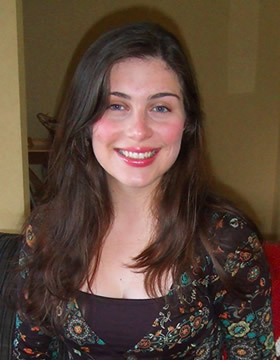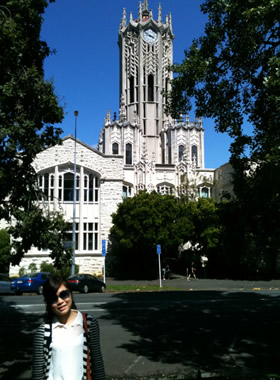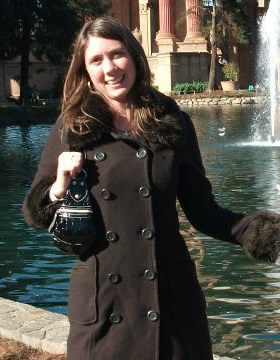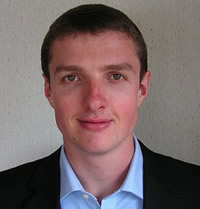This summer, we have a number of fantastic students who received a Department of Statistics scholarship to work on fascinating projects with our staff members. We’ll be profiling them here on Stats Chat and we’d love to hear your feedback on their projects!
Liza Bolton is working with Mark Holmes on an interactive simulation of interacting particle systems.
 Of the scholarship, Liza says:
Of the scholarship, Liza says:
“I am delighted to have this opportunity over the summer, as I’m in love with mathematics and statistics (my two majors in a Bachelor of Science) and was keen to sink my teeth into learning Java. The opportunity to solve problems, sometimes completely abstract, and sometimes with very relevant practical importance, has always drawn me to these subjects. I’ve just completed the second year of my BSc and hope to go on to Honours after my undergrad, before working for a while, and then probably finding my way back to further study.”
Liza explains what the research project is about:
“Imagine you’re on a balcony, looking down on a crowded public square. Below you there’s a sort of multi-party political expo going on. The east wall has a line of Labour Party supporters against it. There are National Party supporters lined up against the west wall, and a line of Green Party supporters on the north wall.
“Do you have that picture in your head? Now, these people lining the walls of the square are never going to change their mind about who they want to vote for. But next, imagine that all the other people in the square (it’s absolutely packed, people are shoulder to shoulder) are far more malleable in their political views. In fact, each person might change their opinion based on the people around them. To stretch the allegory just a little, you can tell that all this is happening from your perch up on the balcony because people are wearing coloured hats to show their party choice, and change to a hat of their new party’s colour when they change their mind.
“Now, political opinion is more complicated than the scenario above, but I hope this might help you picture the actual process of what I’m getting up to this summer. I’m working on creating an interactive simulation of interacting particle systems with Dr Mark Holmes.
“Instead of people, in a square, with peculiar party-appropriate headwear, think instead of a grid with each square (or particle) in the grid a colour. In each time step, one of the squares in the grid is randomly selected to change colour, based on the colours of the squares with an edge adjacent to it. If a blue square is going to change in a particular time step, and has two red and two green squares next to it, it is with probability 0.5 that it will change to green, and likewise to red. And just as with the people you can choose to line the sides of the grid with squares that will not change colour.
The goal for this research is:
“To create a Java applet that people can interact with online that exhibits this idea and also communicates what is going on in a way that will be widely accessible. By the end people will be able to play with this applet, select the colour and position of invariant squares however they like, and watch the system progress through time. Hopefully, it will be a fun little way to create patterns and watch them form, and allow for a basic introduction to the complex and fascinating world of interacting particle systems.”
When Liza’s not going square-eyed staring at grids this summer …
“… I’ll be wearing the hat of Chief Operations Officer for P3 Foundation, a completely youth-lead non-governmental organisation working to empower Kiwi youth to eradicate extreme poverty in the Asia-Pacific. I’ll be doing a bit of work for Teach First NZ, an organisation working to tackle educational inequality in New Zealand, and the family holiday programme at the Voyager Maritime Museum, too. And of course, eating ice cream, reading good books, watching Vlogbrothers and hanging out with my lovely whānau.”
 Huan explains:
Huan explains: Kimberley explains:
Kimberley explains: 
 Of the scholarship, Liza says:
Of the scholarship, Liza says: